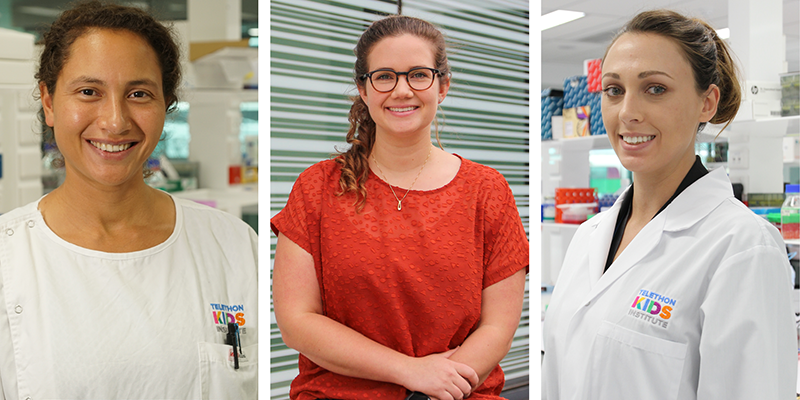Search
Research
Finding the optimal regimen for Mycobacteroides abscessus treatment (FORMaT) in people with Mycobacteroides abscessus pulmonary diseaseMycobacteroides abscessus (MABS) is within the non-tuberculous mycobacteria family. It inhabits soil and water, exhibits multi-antibiotic resistance and causes opportunistic lung infections, which may progress to symptomatic MABS-pulmonary disease (MABS-PD) associated with substantial morbidity, increased healthcare utilisation, impaired quality of life and increased mortality.
Research
The impact of obesity on influenza Vaccine immunogenicity - A systematic reviewInfluenza vaccines are important for reducing the burden of influenza, particularly for populations at risk of more severe infections. Obesity is associated with increased influenza severity and therefore individuals with obesity are often specifically recommended for annual influenza vaccination. Obesity is also associated with an altered inflammatory profile, which may influence vaccine responses. This systematic review aimed to evaluate the evidence for any association between obesity and influenza vaccine immunogenicity.

News & Events
Raine Foundation grants to support key child health researchThree outstanding young researchers from The Kids Research Institute Australia have been named Raine Fellows and received valuable Raine Priming Grants to support their child health research.
Research
Severe adverse reactions to benzathine penicillin G in rheumatic heart disease: A systematic review and meta-analysisFear of severe adverse reaction (SAR) and reluctance of health care providers to administer intramuscular injections are major contributing factors to poor adherence of benzathine penicillin G (BPG) in the management of rheumatic heart disease (RHD). However, data on the risk of SARs following BPG injections for RHD are relatively limited and inconclusive. Our systematic review and meta-analysis aimed to evaluate the incidence of SARs associated with BPG injections used for secondary prophylaxis of RHD.
Research
Prevention of rheumatic heart disease in New Zealand: High-dose subcutaneous benzathine penicillin is cost-saving compared with traditional intramuscular injectionsAcute rheumatic fever is a preventable condition that can lead to chronic illness and early death. Standard prevention with 4-weekly intramuscular (IM) benzathine penicillin G (BPG) injections for ≥10 years may be associated with poor adherence. High-dose 10-weekly subcutaneous penicillin injections (SCIP) may improve adherence by reducing injection frequency.
Research
What goes up must come down: dynamics of type 1 interferon signaling across the lifespanType 1 interferons (T1IFNs) are typically expressed in low concentrations under homeostatic conditions, but upon pathogenic insult or perturbation of the pathway, these critical immune signaling molecules can become either protectors from or drivers of pathology. While essential for initiating antiviral defense and modulating inflammation, dysregulation of T1IFN signaling can contribute to immunopathology, making it and its associated pathways prime targets for immune evasion and disruption by pathogens.
Research
Mapping Bacillus Calmette-Guérin vaccination coverage in Africa from 1990 to 2022: a novel spatiotemporal modelling studyBacillus Calmette-Guérin (BCG) protects children from severe tuberculosis and remains the only licensed vaccine for tuberculosis. Subnational estimates of BCG coverage are essential for identifying underserved populations across Africa. This study aimed to map BCG vaccination coverage in Africa from 1990 to 2022.
Research
Per Os to Protection – Targeting the Oral Route to Enhance Immune-mediated Protection from Disease of the Human NewbornValerie Verhasselt MD, PhD Head, Immunology and Breastfeeding 0402997617 Valerie.verhasselt@thekids.org.au Head, Immunology and Breastfeeding @
Research
Neonatal sepsis: a systematic review of core outcomes from randomised clinical trialsThe lack of a consensus definition of neonatal sepsis and a core outcome set proves a substantial impediment to research that influences policy and practice relevant to key stakeholders, patients and parents.
Research
Australian hospital paediatricians and nurses’ perspectives and practices for influenza vaccine delivery in children with medical comorbiditiesInfluenza vaccination of children with medical comorbidities is critical due their increased risks for severe influenza disease. In Australia, hospitals are an avenue for influenza vaccine delivery to children with comorbidities but are not always effectively utilised. Qualitative enquiry sought to ascertainment the barriers and enablers for influenza vaccination recommendation, delivery, and recording of these children at Australian hospitals.
